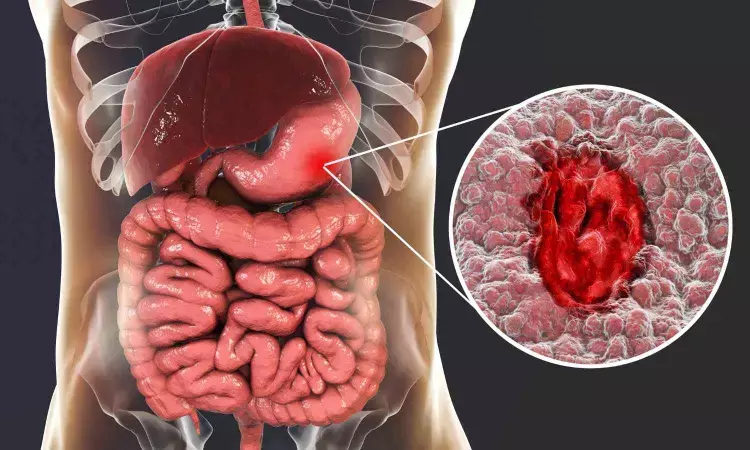- Home
- Medical news & Guidelines
- Anesthesiology
- Cardiology and CTVS
- Critical Care
- Dentistry
- Dermatology
- Diabetes and Endocrinology
- ENT
- Gastroenterology
- Medicine
- Nephrology
- Neurology
- Obstretics-Gynaecology
- Oncology
- Ophthalmology
- Orthopaedics
- Pediatrics-Neonatology
- Psychiatry
- Pulmonology
- Radiology
- Surgery
- Urology
- Laboratory Medicine
- Diet
- Nursing
- Paramedical
- Physiotherapy
- Health news
- Fact Check
- Bone Health Fact Check
- Brain Health Fact Check
- Cancer Related Fact Check
- Child Care Fact Check
- Dental and oral health fact check
- Diabetes and metabolic health fact check
- Diet and Nutrition Fact Check
- Eye and ENT Care Fact Check
- Fitness fact check
- Gut health fact check
- Heart health fact check
- Kidney health fact check
- Medical education fact check
- Men's health fact check
- Respiratory fact check
- Skin and hair care fact check
- Vaccine and Immunization fact check
- Women's health fact check
- AYUSH
- State News
- Andaman and Nicobar Islands
- Andhra Pradesh
- Arunachal Pradesh
- Assam
- Bihar
- Chandigarh
- Chattisgarh
- Dadra and Nagar Haveli
- Daman and Diu
- Delhi
- Goa
- Gujarat
- Haryana
- Himachal Pradesh
- Jammu & Kashmir
- Jharkhand
- Karnataka
- Kerala
- Ladakh
- Lakshadweep
- Madhya Pradesh
- Maharashtra
- Manipur
- Meghalaya
- Mizoram
- Nagaland
- Odisha
- Puducherry
- Punjab
- Rajasthan
- Sikkim
- Tamil Nadu
- Telangana
- Tripura
- Uttar Pradesh
- Uttrakhand
- West Bengal
- Medical Education
- Industry
Extensive Gastric Atrophy Linked to Higher Risk of Esophageal Cancer: Study

Researchers have established in a new study that extensive gastric atrophy (GA) greatly increases the risk of esophageal squamous cell carcinoma (ESCC) development. This new large Japanese cohort study yields more compelling evidence, demonstrating that open-type GA independently elevates the risk of ESCC, even after risk factor adjustment for established risk factors including age, sex, alcohol, and smoking. The study was published in Digestive Endoscopy journal by Kenta W. and colleagues.
The investigation was a retrospective nationwide cohort study that involved 17 health check-up centers in Japan. There were 33,461 participants who received endoscopy from 2013 to 2017 and had at least one follow-up endoscopy up to December 2022. GA was assessed endoscopically and was classified into three groups: atrophy-free, closed-type GA, and open-type GA. The incidence of ESCC was evaluated by Kaplan-Meier survival analysis and Cox regression models by the researchers. Multivariable adjustment was done by considering key confounders such as age, gender, drinking, and smoking.
Results
• Of the 33,461 participants, 17,398 (52.0%) were atrophy-free, 8257 (24.7%) had closed-type GA, and 7804 (23.3%) had open-type GA.
• During a median follow-up duration of 6 years, 77 new ESCC cases were newly diagnosed.
The incidence rates were shown to vary significantly among the groups:
• Atrophy-free group: 24 cases (0.024% per year)
• Closed-type GA group: 15 cases (0.031% per year)
• Open-type GA group: 38 cases (0.089% per year)
• Statistical analysis showed that open-type GA had a strong correlation with increased ESCC risk (p < 0.001).
• In a model adjusted for known risk factors, open-type GA was an independent risk factor with an adjusted hazard ratio of 2.72 (95% CI: 1.58–4.69).
• Closed-type GA did not correlate with ESCC after adjustment.
This huge Japanese cohort study presents new evidence that severe gastric atrophy of the open-type is causally associated with a higher risk of esophageal squamous cell carcinoma. Closed-type GA was not associated with such risk, suggesting that atrophy severity is crucial. The results highlight the need to recognize GA, especially open-type, as a possible marker of ESCC risk and stress the necessity for strict long-term follow-up in this group.
Reference:
Watanabe K, Fukuda S, Kubota D, et al. Potentially Causal Associations Between Extensive Gastric Atrophy and Esophageal Squamous Cell Carcinoma: A Nationwide Retrospective Cohort Study in Japan. Dig Endosc. Published online August 26, 2025. doi:10.1111/den.70019
Dr Riya Dave has completed dentistry from Gujarat University in 2022. She is a dentist and accomplished medical and scientific writer known for her commitment to bridging the gap between clinical expertise and accessible healthcare information. She has been actively involved in writing blogs related to health and wellness.
Dr Kamal Kant Kohli-MBBS, DTCD- a chest specialist with more than 30 years of practice and a flair for writing clinical articles, Dr Kamal Kant Kohli joined Medical Dialogues as a Chief Editor of Medical News. Besides writing articles, as an editor, he proofreads and verifies all the medical content published on Medical Dialogues including those coming from journals, studies,medical conferences,guidelines etc. Email: drkohli@medicaldialogues.in. Contact no. 011-43720751


